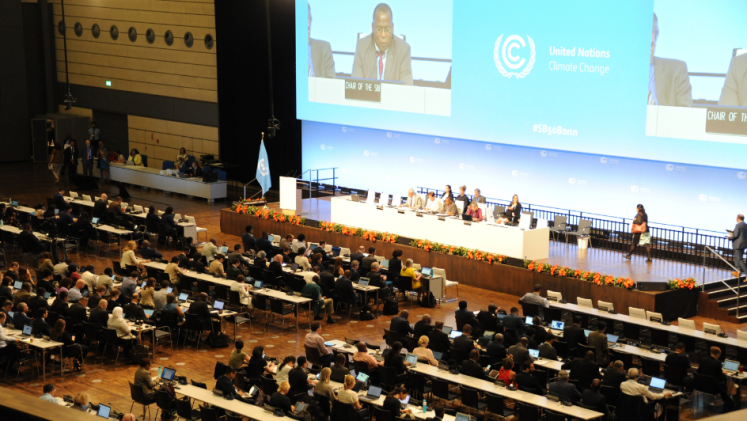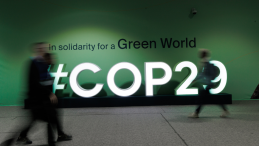June Climate Meeting prepares for critical UN summit at the end of the year
UN delegates convene in Bonn Germany from 16 to 26 June, 2025. June's Bonn Climate Change Conference (SB 62) is crucial preparation for the COP 30 climate conference in Belém, Brazil, later this year. COP 30 is not ‘just another climate conference’, but a pivotal summit for climate action. Why? 2025 is the deadline for submitting country climate plans through 2035, a key step to guide national action toward achieving climate neutrality. Furthermore, COP 30 offers the chance to follow up on numerous unresolved issues from COP 29 in Baku, Azerbaijan. COP 30 is essential for shifting the UNFCCC's focus from negotiations to the concrete implementation of climate action. In this, the Brazil COP presidency 2025 has an important role.
Agenda for Bonn: progress needed on the Global Goal on Adaptation, Just Transition and the Global Stocktake
Delegates at the Bonn Climate Change Conference face a demanding agenda. Two weeks of intergovernmental negotiations are dedicated to advancing unfinished business from the previous and laying the groundwork for the upcoming COP. Over 50 agenda items require negotiation, complemented by more than 30 workshops and mandated events that will provide crucial input for the expected Belém outcomes.
Key items on the agenda include developing indicators for the Global Goal on Adaptation and making progress on a work programme for a just transition. On Loss and Damage, country delegates need to reflect on the work of the Warsaw International Mechanism and decide on activities for the next work plan. Significant attention will be given to the Global Stocktake (GST). Countries need to prepare decisions on the mechanics for the second GST, anticipated to be conducted between 2026 and 2028. Simultaneously, efforts must focus on implementing recommendations from the first GST, including language concerning the transition away from fossil fuels and the global increase of renewable energies.
Organizational elements also feature prominently on the agenda. Countries must reach decisions on the UNFCCC secretariat's budget for 2026-27, a contentious issue that is expected to be even more challenging given current defunding scenarios. Furthermore, there is a debate on reforming the UNFCCC process itself: At COP 29 countries agreed on the last outstanding rules for putting all elements of the Paris Agreement in motion; with the expectation now to accelerate the transition from global negotiations to facilitating more implementation.
Outlook to Belém: New forms of collective climate action
Bad news on the climate front has become commonplace, with single governments retreating from international climate cooperation. This trend emerges as the climate crisis grows increasingly dire. The latest WMO Global Annual to Decadal Climate Update concludes that the next five-year global temperature average will likely surpass 1.5°C for the first time.
In this challenging situation a critical role falls to the Brazil COP presidency, which is prepared to deliver by drawing on its own culture of collective efforts and multilateralism. Brazil is advocating for a Global Mutirão, a concept rooted in the Tupi-Guarani Indigenous language, which describes a collective effort aimed at a shared objective. Brazil wants the international community to adopt this approach to bolster climate action across various scales. This would involve creating formal, year-round consultation opportunities and encouraging national leaders to present their most ambitious climate plans latest by September, coinciding with the UN General Assembly. The initiative also underscores the significant impact of local action: It incorporates a normative component calling for inclusive dialogues combating environmental racism and inequalities within the newly established four Circles of Leadership that explicitly includes a ‘Circle of Peoples’, next to three more dedicated to COP presidents, finance ministers and the global ethical stocktake. Strengthening collective approaches and recognizing local and Indigenous approaches beyond tokenistic formats can help bridge and bring back the lack of ambition at the national and international level.
Ultimately, the COP 30 presidency's ambition to connect the climate agenda directly to people's real lives is an essential part of the needed systemic transformation, requiring new forms of engagement and communication, as proposed. This will be crucial to reprioritize climate action and prevent marginalization amid other international challenges. COP 30 can be an inflection point for climate action and multilateralism in general.





